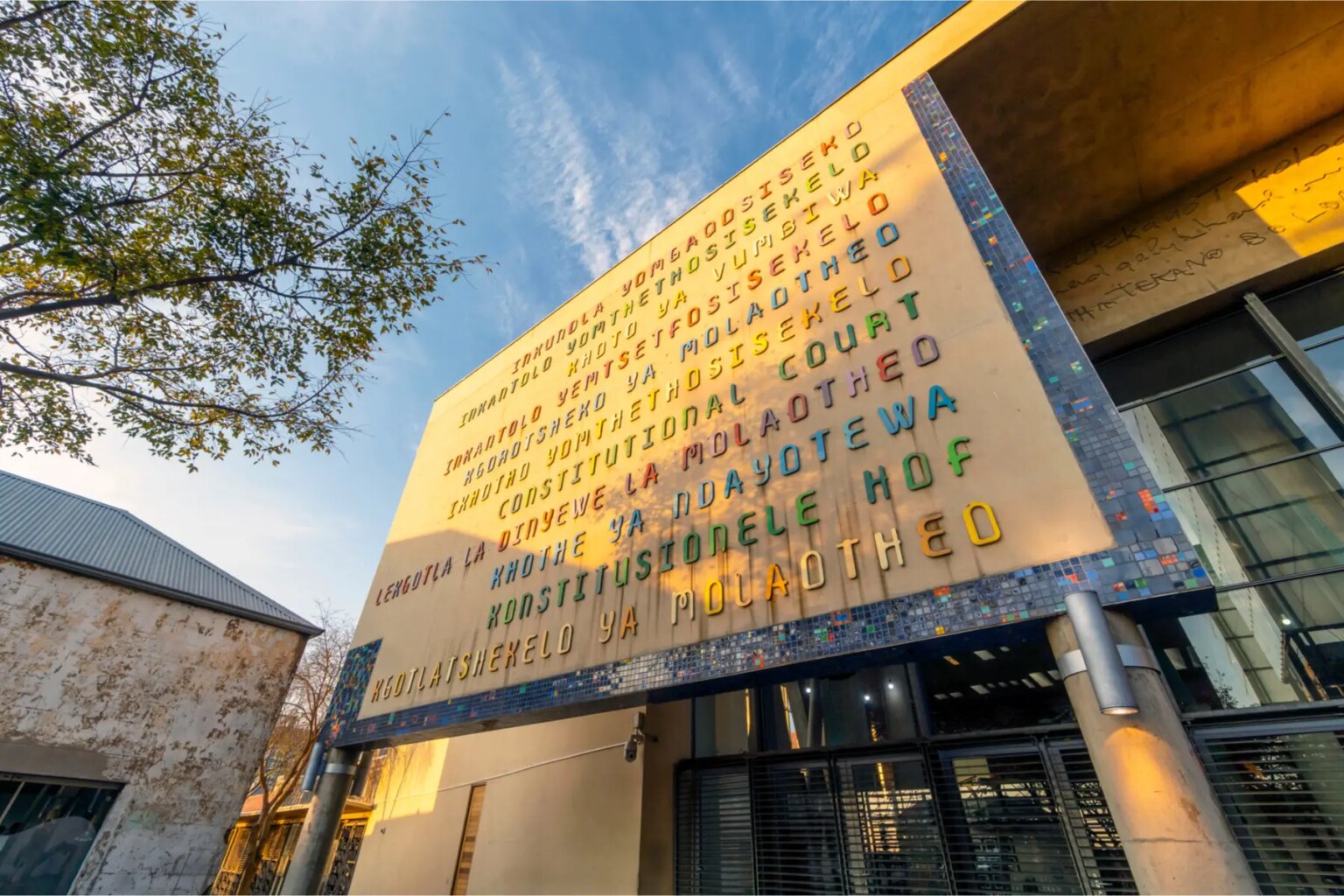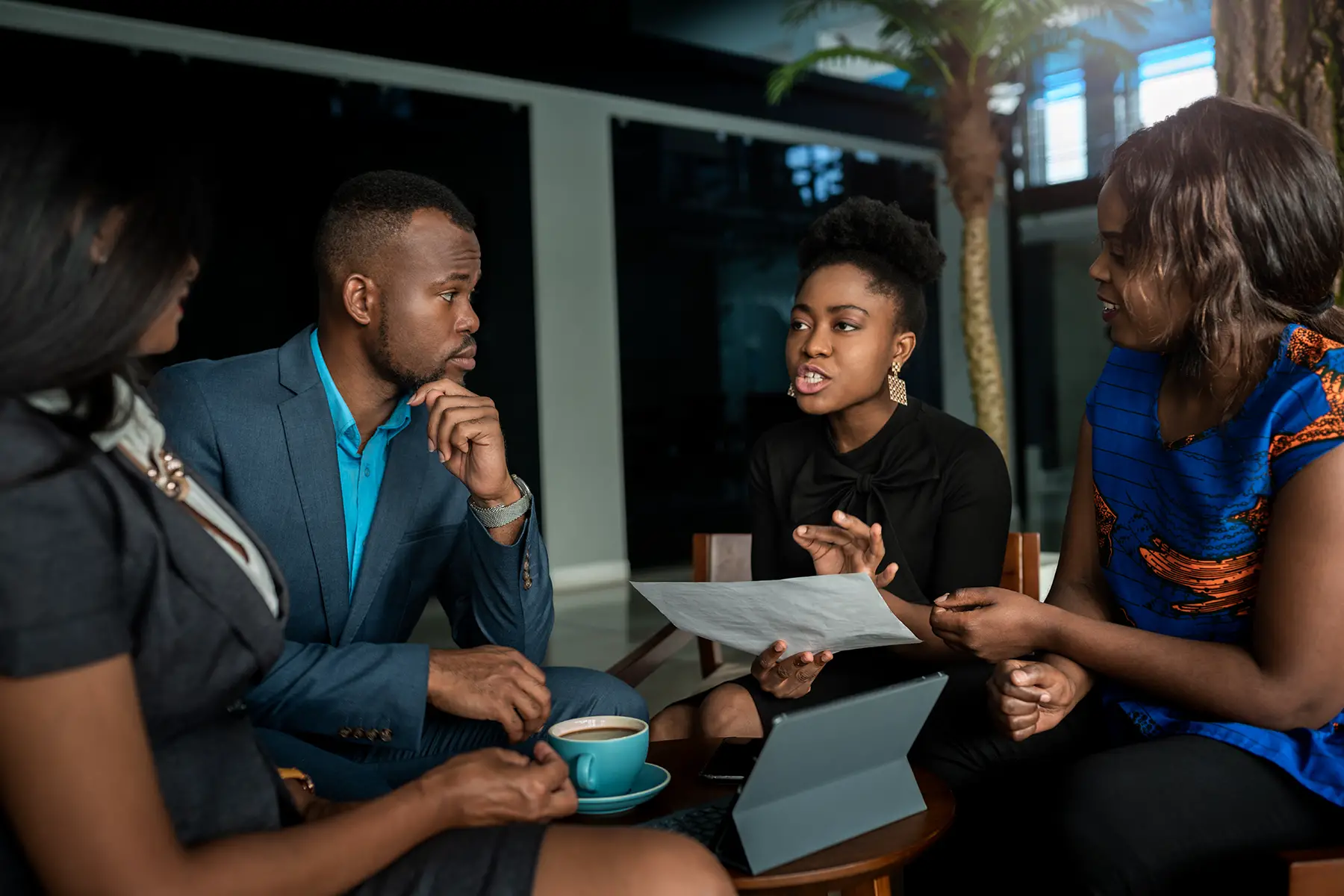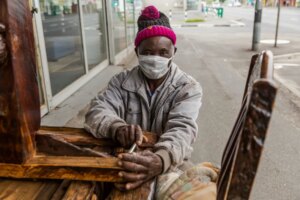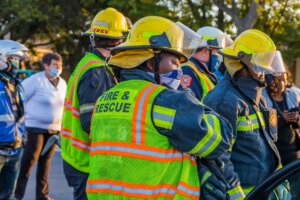The advent of democracy saw South Africa join the community of nations with a progressive constitution. This provides a solid foundation upon which to build protection for both human rights (the universal basic freedoms and dignity of every person) and civil rights (the legal protections within the political system of a country). If you are moving to South Africa it is worth understanding your rights and what protections are available to you.
These topics and more are covered below, including sections on:
- Overview of human rights in South Africa
- Civil rights in South Africa
- Political rights in South Africa
- Social and cultural rights in South Africa
- Workers’ rights in South Africa
- Women’s rights in South Africa
- LGBTQ+ rights in South Africa
- Disability rights in South Africa
- Anti-racism and anti-discrimination legislation in South Africa
- Migrant and refugee rights in South Africa
- What to do if your rights are abused or restricted in South Africa
- Human rights organizations in South Africa
- Useful resources
Ground News
Get every side of the story with Ground News, the biggest source for breaking news around the world. This news aggregator lets you compare reporting on the same stories. Use data-driven media bias ratings to uncover political leanings and get the full picture. Stay informed on stories that matter with Ground News.
Overview of human rights in South Africa
South Africa molded its system of civil and human rights from the ashes of Apartheid. During the Apartheid era, black South Africans were denied basic human and civil rights. The system elevated white South Africans above their compatriots. Subjecting black (African, colored/mixed race, and Indian) citizens to forced removals, unequal treatment before the law, and violent oppression. Echoes of the brutal system of Apartheid reverberate through South African society to this day. From persistent inequality to crime and violence.
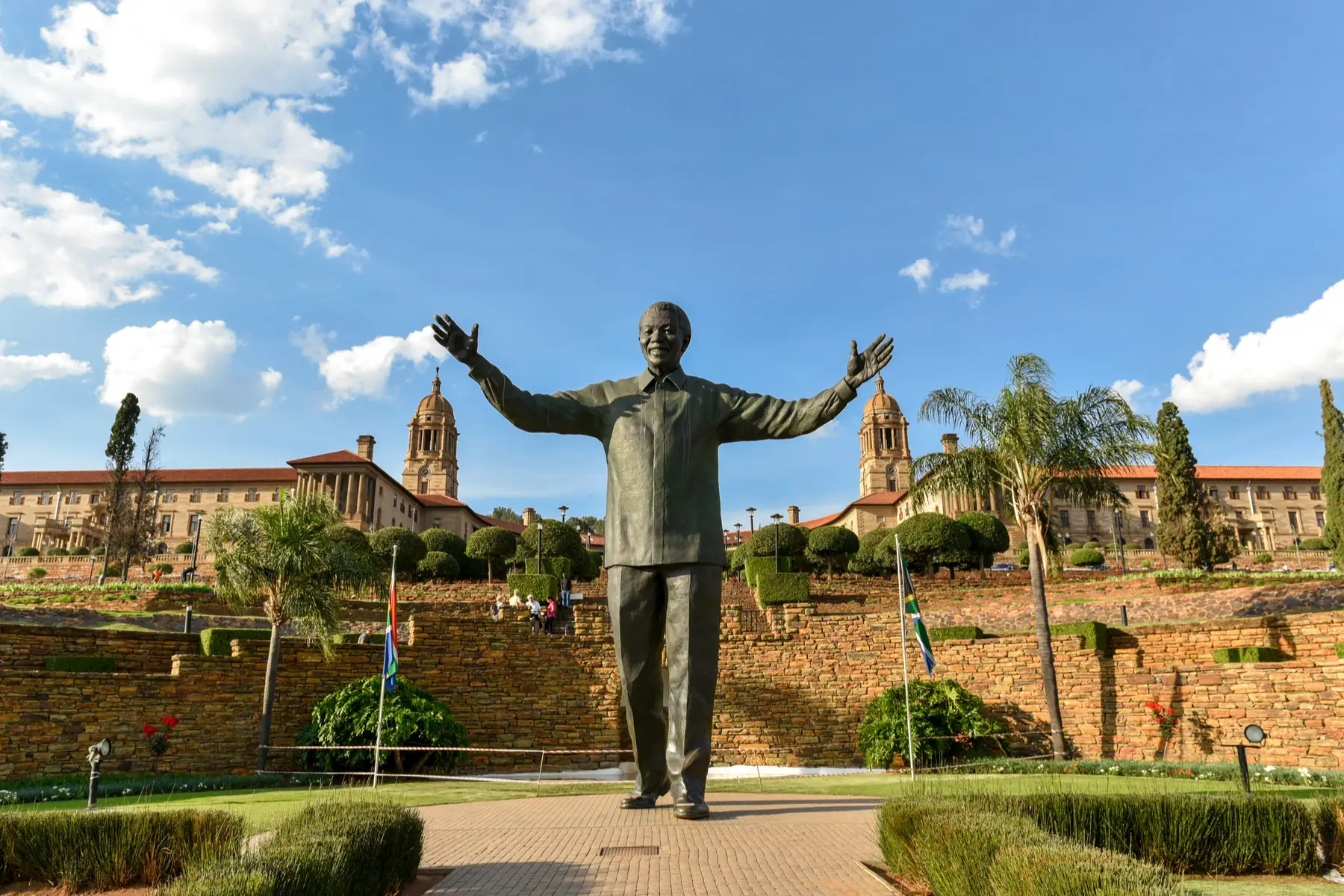
March 21 is Human Rights Day in South Africa. It marks the date of the Sharpeville Massacre in 1960, when police fired on anti-apartheid protestors, killing 69 people.
Post-Apartheid rights-based society
The end of Apartheid and South Africa’s first democratic elections, held in 1994, opened the way for building a rights-based political system. The new Constitution, which came into effect in February 1997, outlines a Bill of Rights.
The Constitution calls for every organ of state, public and private organization, and individual to respect and defend human rights. However, as with other parts of the world, people and institutions often fall short. Chapter 9 of the Constitution provides for the establishment of independent institutions to guard against rights abuses. They include the following:
- The Public Protector
- The South African Human Rights Commission
- The Commission for the Promotion and Protection of the Rights of Cultural, Religious and Linguistic Communities
- The Commission for Gender Equality
- The Auditor-General
- The Electoral Commission
- The Independent Authority to regulate Broadcasting
The SAHRC has powers to investigate human rights issues and can hold the government, corporations, and citizens accountable for infringements. The Public Protector has a mandate to conduct oversight of the state. It has the power to investigate, report, and remedy improper conduct in state affairs.
International human rights treaties
South Africa is a signatory to many international human rights conventions. For example, it has signed and ratified numerous UN human and civil rights treaties. From conventions against discrimination and torture to covenants on civil and political rights and more.
Another is the African Charter on Human and Peoples’ Rights, established in 1981, which seeks to hold African countries accountable. The Charter was a significant step forward for the African continent as it echos the Universal Declaration of Human Rights.
In 2021, South Africa ranked 77 of 165 jurisdictions on the Human Freedom Index. The country’s score for personal freedom was 7.53 (out of 10), 6.97 for economic freedom, and 7.30 for human freedom. This places South Africa well above most African nations but below other middle-income countries like Peru (50) and Costa Rica (37).
Civil rights in South Africa
As mentioned, South Africa’s Apartheid history shaped the crafting of the Constitution and the civil rights situation in the country today. In fact, the preamble of the Constitution states the intent is to “establish a society based on democratic values, social justice, and fundamental human rights”. As a result, the democratic state has one of the most progressive Constitutions in the world. This is due, in part, to clauses regarding sexual orientation, race, and environmental rights.
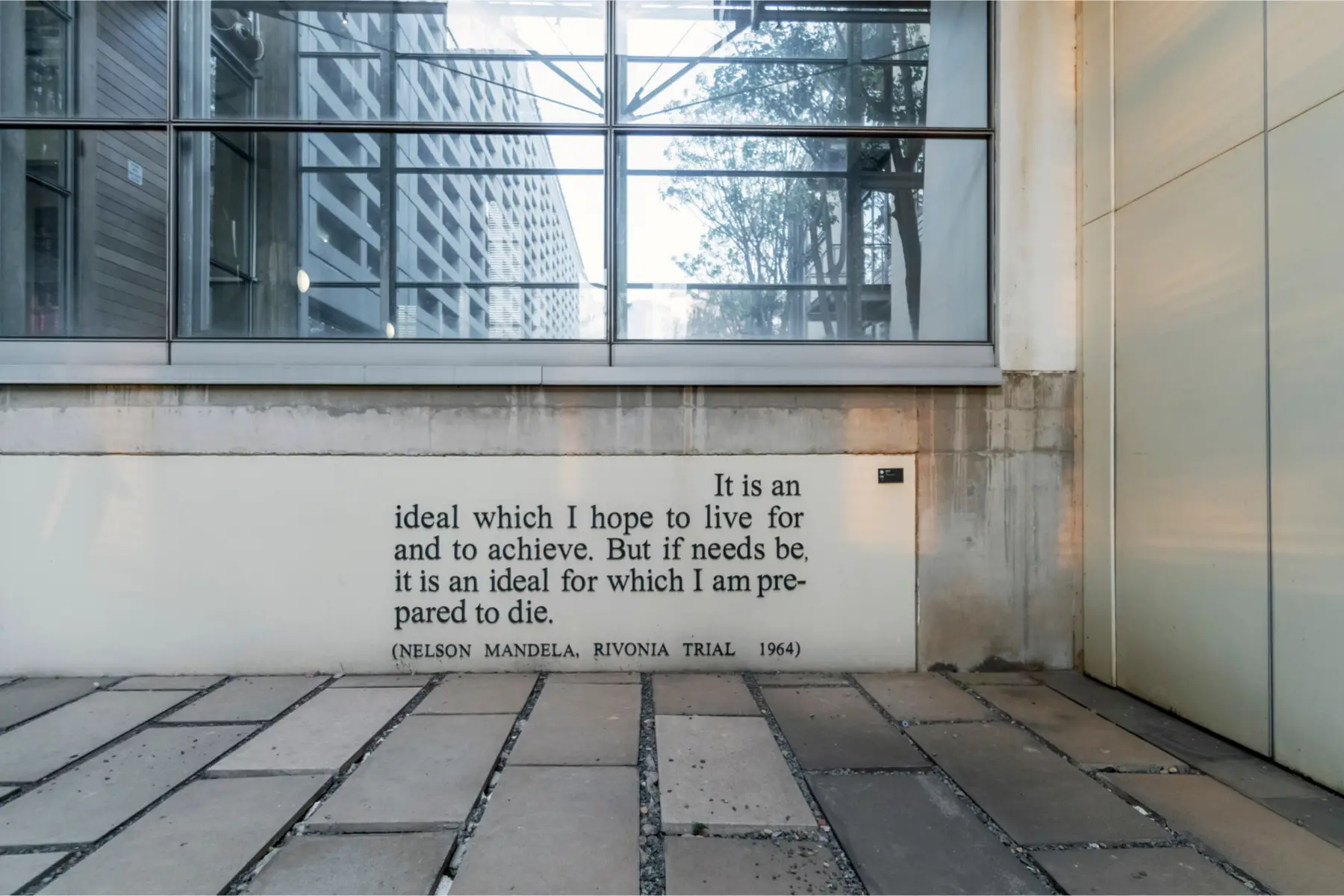
The hallmarks of South Africa’s open society include:
- Freedom of religion
- Freedom of speech
- Political freedom
- A strong civil society
- The right to protest peacefully
- A robust free press
- An independent judiciary
However, in recent years both the judiciary and media have seen increased political attacks. This is largely due to the fallout from a period of state capture and grand corruption.
Right to privacy and checks on state surveillance
Freedom House ranks South Africa as a ‘free’ democracy, giving it a score of 79 out of 100 overall and 46 out of 60 for civil liberties. Freedom House noted that state surveillance of citizens was a concern. In fact, in 2021 the Constitutional Court ruled against security ministers and declared bulk surveillance illegal. It also declared sections of a surveillance law unconstitutional, as the regulations did not provide enough protection for the likes of lawyers, journalists, and judges.
Section 14 of South Africa’s Constitution guarantees the right to privacy. This right includes protection against illegal searches and communications intercepts.
The Protection of Personal Information Act 4 of 2013 aimed to rectify the lack of clarity about data protection. It limits how private and public bodies can store and share your information. As of 2021, an amendment also requires businesses to use appropriate technology to protect customer data.
Right to a fair trial
In South Africa, you have the right to a fair trial. Authorities cannot detain you for longer than 48 hours without bringing you to court. Authorities must tell you why they are arresting you. Additionally, you must be provided food, accommodation, and medical treatment when detained. In South Africa, you are innocent until proven guilty. You, therefore, have the right to remain silent.
Despite its progressive laws, South Africa faces criticism both internally and externally for failing to live up to its Constitution. Shortcomings range from a lack of access to food, water, and healthcare to social security failings. Also of concern are indecent prison conditions, police brutality, and official corruption.
Political rights in South Africa
South Africa is a constitutional democracy. This means that every South African citizen who is 18 or older has the right to vote in national elections. Since 2014, this also includes citizens living abroad.
Citizens have the right to attend meetings in Parliament (the National Assembly and the National Council of Provinces). They also have the right to contact MPs and voice their opinions on issues.
Every South African citizen has the right to create, join, or campaign for a political party. In 2019, a record-breaking 48 parties registered for the national elections. Since the fall of Apartheid, the African National Congress has won the right to govern at every national election. However, it has been losing support given the shortcomings of the government.
Social and cultural rights in South Africa
South Africans are proud of their multicultural society. There are no restrictions on religious and cultural practices, save those that would be unconstitutional. The dominant faiths in South Africa include Christianity, Hinduism, Islam, traditional African religions, and Judaism. The country also boasts 11 official languages. It also attracts immigrants from all parts of the globe who add their languages and cultural practices to the mix.
The post-Apartheid period, with its Constitutional guarantees around language, culture, and cultural freedoms, has also birthed an explosion of creative work. From films, television, and theatre to restaurants, comedy clubs, and art galleries.
However, there have been tensions around political satire in recent years. With politicians and their supporters outraged at satirical paintings and editorial cartoons. There have been calls for boycotts, legal disputes, and threats. However, freedom of expression is evident in the output of the country’s artists and thinkers.
Social safety nets, housing, and education
In South Africa, everyone has the right to adequate housing. Between 1994 and 2021 the state delivered more than 5 million subsidized houses and housing opportunities to those who qualify for assistance. However, rapid urbanization has seen informal settlements mushroom. As a result, some 2,2 million households, or roughly 12,5 million people, in South Africa still live in shantytowns. These are often located close to the job opportunities in cities, towns, and suburbs.
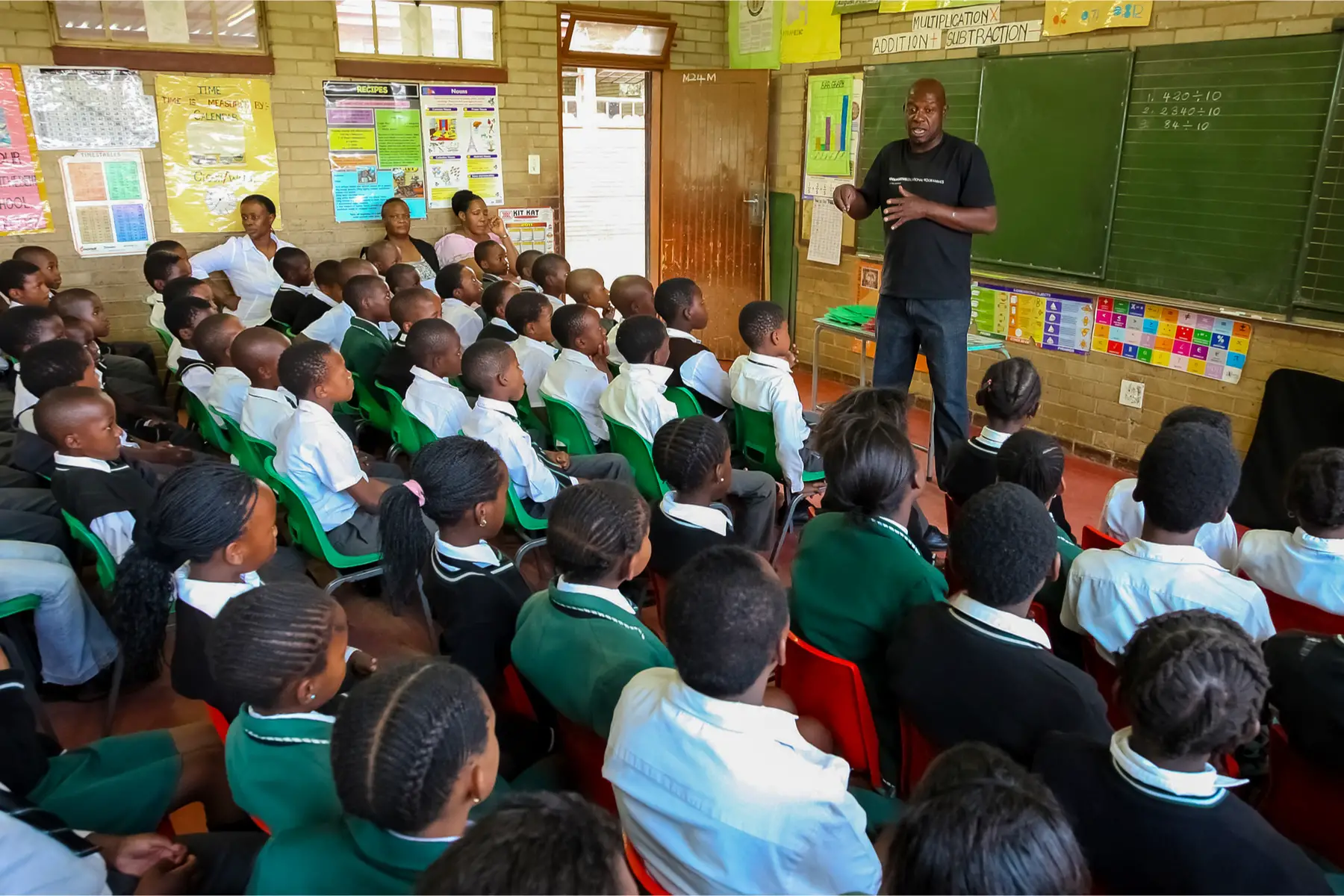
With regard to education, everyone has the legal right to education. This includes basic and further education. Educational institutions cannot discriminate on the basis of race. However, education in South Africa continues to echo the ills of the past. Educational inequality persists. As such, there’s a large gulf between private and public schools. As a result, many rural public schools have overcrowded classrooms, poor infrastructure, and insufficient funding. Only 40-50% of all South African students graduate from high school and only 14% make it to university. Many expats choose to send their kids to private and international schools in South Africa.
Access to healthcare
When it comes to healthcare, access to medical services is a Constitutional right. No one can refuse you emergency medical treatment in South Africa. Healthcare in South Africa is split into private and public sectors. As a result, you will find world-class care on the one hand and inadequate resources on the other. Many locals, and expats, take out private health insurance. In fact, most employers in South Africa mandate that staff members join medical schemes.
There are various health insurance providers in South Africa, including a number of expat-friendly international companies. Among them are:
South Africa extends social security safety nets to all citizens who qualify for assistance. This aid helps those who cannot earn money due to sickness, maternity, injury, unemployment, invalidity, and age. Welfare in South Africa includes:
- Child Support Grants
- Pensions
- Disability Grants
- War Veteran Grants
- Unemployment Insurance
Workers’ rights in South Africa
Labor laws in South Africa make it illegal to hire anyone younger than 15 unless it is in the performing arts. However, in that case, the work must be appropriate for their age and cannot put them in any danger.
Everyone has the right to fair labor practices in South Africa. This includes the right to start or join a trade union. However, only 23% of South African workers were union members in 2021.
Workers also have the right to strike in South Africa. The last two decades have seen strikes for increased wages, many of which fell within the law. However, unofficial strikes have at times snowballed into extreme violence, such as the mine-workers strike that culminated in the Marikana Massacre in 2012.
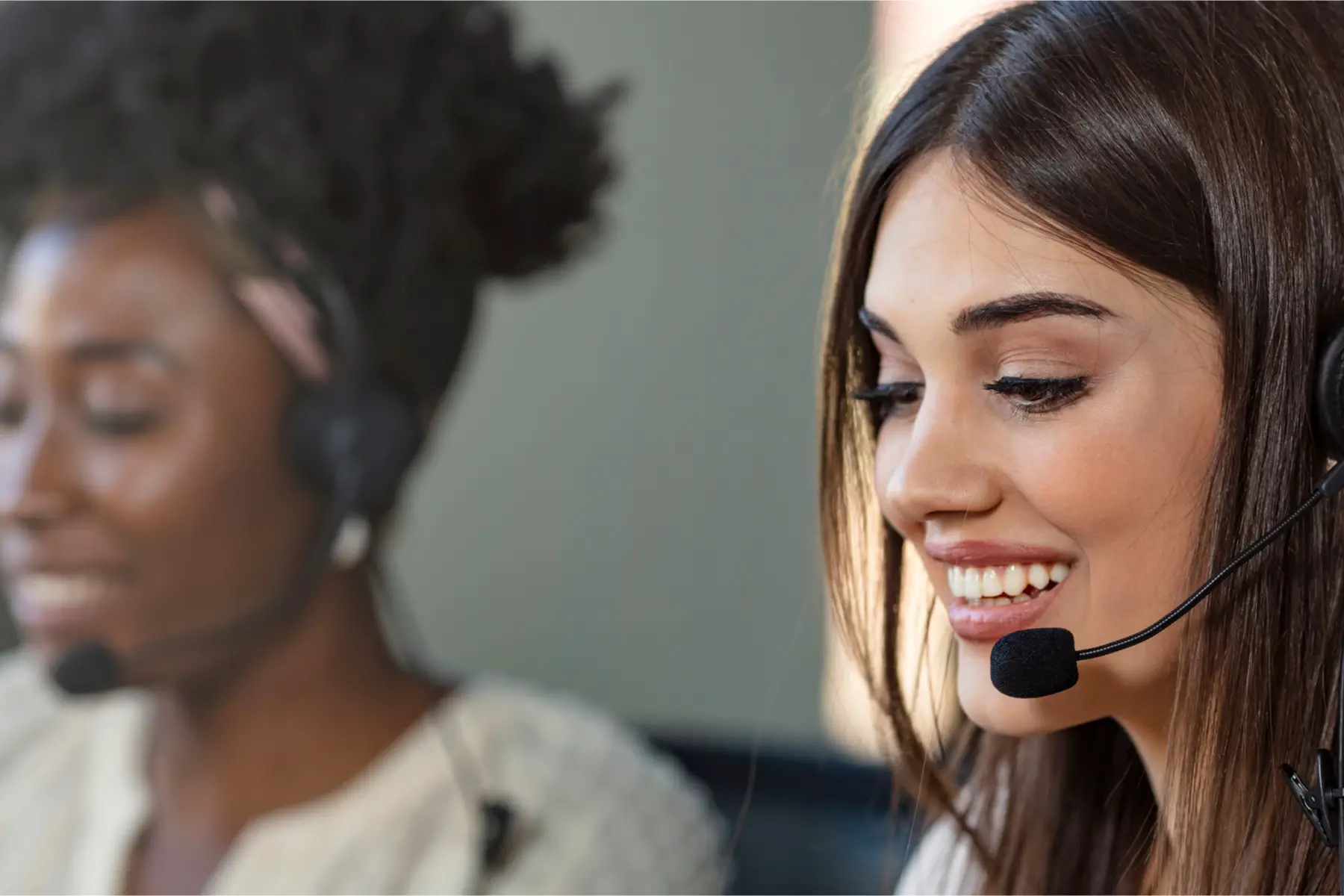
As an international hire, you can get a work permit in South Africa. However, your employer must show that no citizens or permanent residents are suitable and available for the job. The highly skilled migrant visa allows those with niche skills to work in South Africa, and the intra-company transfer visa enables employees of multinational companies to transfer to South Africa.
Women’s rights in South Africa
Women and men are legally on an equal footing in terms of human rights in South Africa. However, gender inequality and violence against women are of great concern. So, while the literacy rate among women was 94.5% in 2019. The facts are that women are more likely to be unemployed and earn lower wages. In addition, women occupy just 31,2% of management roles. Also of concern, 64.7% of South Africans believe that a woman earning more than her husband causes trouble.
Gender-based violence is a concern in South Africa. COVID-19 lockdowns exacerbated this problem. Between July and September 2021, the police recorded 9,556 cases of rape, the majority of victims being women. A minority still holds backward views on gender roles. A survey showed that 3.3% of South Africans believe it is justified for a man to beat his wife if she neglects their children.
LGBTQ+ rights in South Africa
South Africa’s post-Apartheid Constitution is the first in the world to guarantee LGBTQ+ rights. No one can discriminate against you based on your gender, sex, or sexual orientation. Note that distinguishing between gender and sex at the time was revolutionary.
The LGBTQ+ community in South Africa fought a long battle to assert their basic human rights, which were denied under Apartheid.
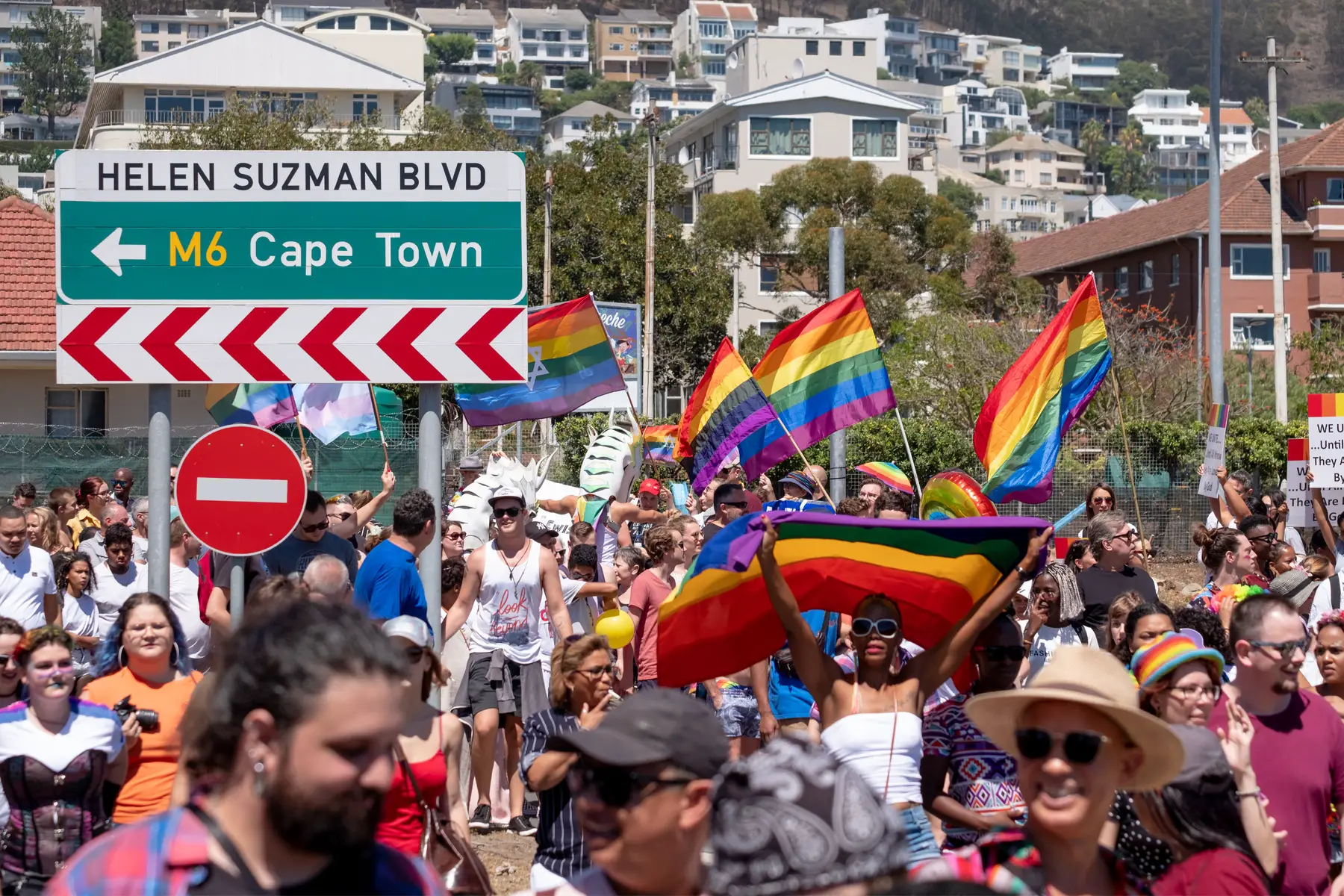
In 2006, South Africa became the first African nation and 5th country in the world to legalize same-sex marriages. Homosexual couples can adopt children and individuals can enter the military. Changing your gender is legal. There is also legal recognition of non-binary people. There are no LGBTQ+ limitations on donating blood and no LGBTQ+ censorship.
However, as in other parts of the world, discrimination based on sexual orientation still exists in South Africa. The country still records incidents of hate crimes. Civil society and human rights organizations continue to fight for the rights and protection of the LGBTQ+ community.
Disability rights in South Africa
Discrimination against anyone based on disability is illegal in South Africa. The state has to provide free and equitable healthcare services to those living with disabilities. This includes sexual and reproductive healthcare. However, as mentioned above, South Africa’s healthcare system mirrors the inequality of society at large. As a result, most private healthcare facilities have more resources than state healthcare centers.
Mzansi is a signatory to the UN Convention on the Rights of Persons with Disabilities. This recognizes people with disabilities as full and equal members of society. The convention also aims to break the stigma around mental and physical disabilities. Of course, building more equal societies is a challenge the world over. People with disabilities often struggle to participate fully in South African society.
Anti-racism and anti-discrimination legislation in South Africa
South Africa’s constitution declares that the country belongs to “all who live in it, unified in our diversity”. The Bill of Rights gives everyone equal status before the law. As such, it is illegal to discriminate against people based on:
- Race
- Color
- Ethnicity
- Culture
- Social origin
To address the economic exclusion of Apartheid, the government established the broad-based Black Economic Empowerment (BEE) program in 2004. It aims to increase black (African, colored/mixed race, and Indian) participation in every sector of the economy. However, the program became a vehicle for enriching politically connected elites. As a result, the state tweaked the program over a number of years. In a nutshell, a company can improve its BEE score by:
- Trading with other BEE-approved businesses.
- Achieving levels of black ownership.
- Having management that better reflects the country’s demographics.
- Investing in skills development.
Xenophobia and hate crimes
Racism and xenophobia did not evaporate with the fall of Apartheid. Three decades on, South Africa still struggles with these issues. As a result, the National Action Plan (NAP) of 2019 promotes the unity of all South Africans, echoing the preamble of the constitution, it denounces racism and xenophobia. It also emphasizes that attitudes and conversations around race need to change.
A 2019 report found that 59% of hate crime victims in South Africa were black. Less than half (42%) of all victims were South African, the majority were foreign-born including 28% from East African countries and 18% from Central African countries. There are a number of civil society organizations tackling racism and xenophobia and the impacts thereof.
Migrant and refugee rights in South Africa
South Africa hosts the largest number of immigrants in Africa. The majority of them come from other African countries. However, a large number of immigrants from Europe and North America also make the move to the sunny southern tip of Africa. Apart from its attractive climate, migrants are drawn to its relative economic and political stability, including a sophisticated financial services sector.
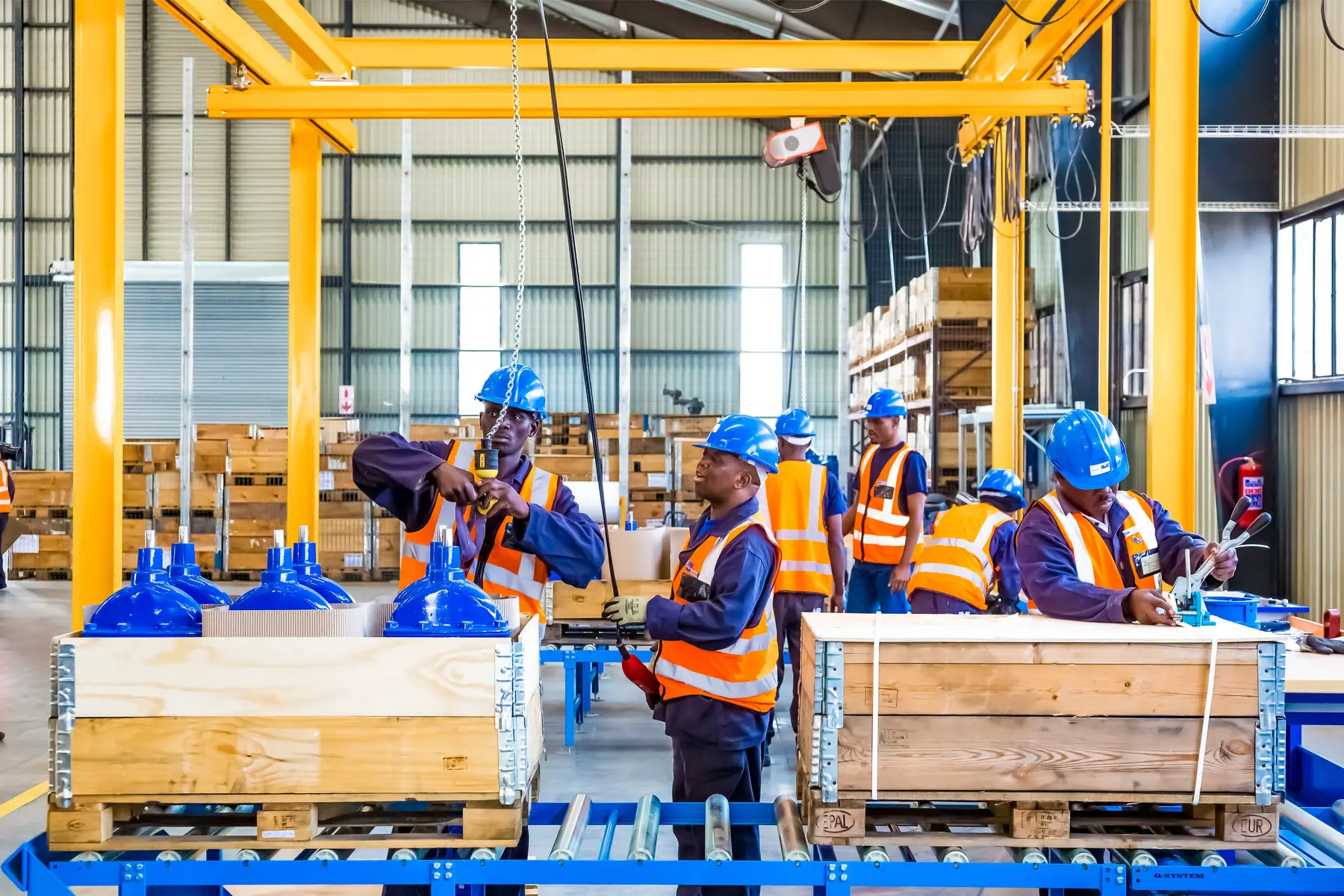
Of all immigrants in South Africa, about 9% are refugees. Officially, the UN High Commissioner for Refugees counts South Africa as hosting 173,461 asylum seekers and 76,729 refugees in 2021. Most refugees and asylum seekers are from Ethiopia, Somalia, the Democratic Republic of the Congo, Burundi, Bangladesh, and the Republic of the Congo.
Asylum seekers rights
Unlike other host countries, South Africa does not place refugees in camps. Refugees live in local communities. The Refugee Act of 1998 gives asylum seekers the right to live, work (with permission), and study in South Africa while their refugee status is being determined. If you receive a refugee permit it is renewable every two years. You can apply for permanent residence in South Africa if you have lived in the country on a refugee permit for five years. However, like elsewhere in the world, South Africa is tightening its refugee regime. Making it harder for migrants to seek asylum in South Africa. As a result, 96% of asylum seekers were rejected in 2019 and there was a backlog of 190,000 appeals and reviews.
Regardless of visa status, black foreigners have faced prejudice and sporadic xenophobic attacks in South Africa in recent years. In March 2008, 62 people died in violence that displaced 50,000 people. There has also been a rise in political scapegoating of undocumented migrants. South Africa’s recent economic and political struggles have also added to tensions in low-income communities.
What to do if your rights are abused or restricted in South Africa
You can report any violation of your rights to the South Africa Human Rights Commission. The Commission will decide whether to investigate it or not and whether to call on state bodies to assist.
You can lodge a complaint with the SAHRC directly on your behalf as well as someone else. Having said that, you must report any criminal conduct to the police service.
At the international level, the Office of the United Nations High Commissioner for Human Rights deals with human rights violations and can be approached directly.
Human rights organizations in South Africa
Many of the following human rights organizations in South Africa were either involved in the dismantling of Apartheid or were established shortly afterward to help rebuild the nation. They continue to research and protect human rights in South Africa today.
Useful resources
- Department of Labour South Africa – for updated information on labor law
- Parliament of South Africa – for human rights updates and more
- Amnesty International – for reports on human and civil rights in South Africa
- SAHRC – can investigate human rights abuses
- Public Protector – if a state entity has trampled your rights
